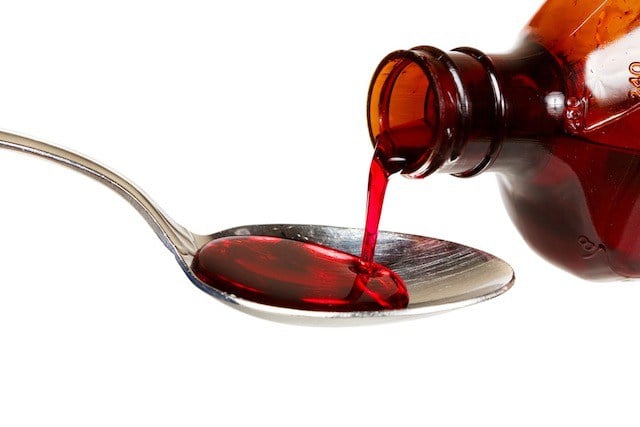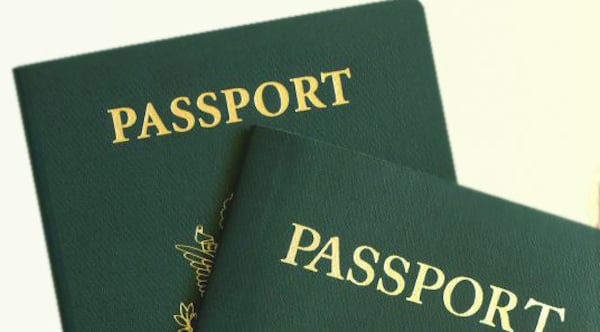BY TAJUDEEN SULEIMAN, ICIR
This is the second and concluding part of this report by Tajudeen Suleiman, editor of the International Centre for Investigative Reporting (ICIR), on the worrying trend of young women in Northern Nigeria getting hooked on drugs and its possible future implications.
According to the 2015 annual report of the National Drug Law Enforcement Agency (NDLEA), the north west topped the table of arrests for drug-related offences for that year, with a total of 2,205 persons, beating the south-west which recorded 1,785 arrests. The north-central followed with 1,605 while the south-south, south-east and north-east recorded 1,380, 979 and 824 respectively.
But out of a total of 2,205 people arrested on drug charges in the north-west, only 38 were females – the least, compared to other zones, especially south-south, which led with a total of 269 females.
But this is because the arrests were made largely for trafficking and use of narcotics such as cocaine, heroin and cannabis, which constituted over 90 per cent of drug seizure for the year and previous years.
The NDLEA, established by Decree 48 of 1989 (now CAP N30 LFN 2004), is the government agency charged with eradicating illicit traffic and use of narcotic drugs and psychotropic substances.
Advertisement
However, the agency faces an uphill task in dealing with the problem of drug abuse by women in the north because, its mandate does not cover cough syrup, the most commonly used substance by the women.
The NDLEA borrows from World Health Organisation (WHO), which has placed under international control about 118 narcotic substances, while that of psychotropic substances is about 111.
Advertisement
But the list does not include cough syrups and the tablets that northern women now use to get high. Although codeine is in the list of narcotics, when it is used in cough mixtures, it is regarded as medicine and is perfectly legitimate. So, the ladies settle for cough mixtures that contain codeine.
Tablets such as rohypnol, tramadol, diazepam and lexotan, which are abused by northern women, are controlled drugs that are sold only after a doctor’s prescription.
It was gathered that the tablets are usually prescribed for extreme pain such as that experienced by people suffering from the sickle cell disease and neurological disorders. But those intent on getting them for a moment of high easily and readily purchase the drugs.
According to a pharmacist, Kemi Olatundun, controlled drugs “affect the mood and could make the user a danger to herself/himself and to the society”.
Advertisement
She said codeine cough syrup is also classified among control drugs because of the codeine contents, and they are to be sold only at a doctor’s prescription.
The abuse of codeine syrup and these tablets now constitutes the greatest challenge faced by drug officers operating in Northern Nigeria. Since the law does not forbid the drugs from being sold or consumed, it is difficult for law enforcement agencies to tackle the menace.
Hamza Umar, state commander of the NDLEA in Kano, told the icirnigeria.org that the state was witnessing the involvement of more women in drugs, basically cough syrup and off-the-counter drugs like rohypnol, tramadol and others.
Umar disclosed that he had 19 females in detention and that all were arrested in one day for drug abuse. One is a 200 level university student.
Advertisement
“I will not deceive the public. It is indeed increasing. We are seeing more women now getting involved in drug. I just sent our operatives into town and within one hour they rounded up over 100 girls involved in drugs. And they found these girls in just two places inside Sabongari, and they cut across all ages. Some even have to breastfeed their children here because they left the children at home,” he revealed in a chat.
His counterparts in Sokoto, Zamfara, Kaduna and Katsina have made similar revelations. The NDLEA Commander in Sokoto said the involvement of women in drugs is now a serious problem not just in the state, but in the whole of the North. He told our reporter in an interview that while men abuse cannabis, the women now abuse cough syrup with codeine content.
Advertisement
“To tell you the truth, I think the issue of cough syrup came around 2005, that’s when we begin to see a proliferation of cough syrup. I started this job in the ‘90s and we never saw anything like this. It has become an epidemic. I had worked in Lagos and Ondo and I have never arrested anybody over cough syrup or heard any case of abuse of cough syrup,” he lamented.
Since cough mixture is not regarded as narcotic, it is not captured in the statistics of the NDLEA. But Idris gave an indication of how serious the problem is.
Advertisement
“A former Commander of the NDLEA in Kano said about three million bottles of codeine cough syrup are being consumed daily in Kano state alone,” he stated.
Advertisement
Codeine addiction
It is common to see young girls in social spots at night openly take cough syrup in many cities across the North, but especially in Kano, Kaduna, Sokoto, katsina, Gusau, Gombe, Maiduguri and Yola.
In Kano where retailers of codeine are largely based in Sabongari, you find single and married women in the streets of Odutola, Sanya Olu and Abedi at night, from 9.00 pm till early hours of the morning, frolicking with bottles of soft drinks mixed with bottles of codeine.
Married women who live in conservative parts of the city send children or friends to buy the drugs for them.
Umar Dambo, a medicine store owner in Gusau, told icirnigeria.org that married women in the city send their children to buy the syrup.
“Usually they start buying from 6.00 pm until about 9.00 or 10.00 pm when most shops would close.
Users of codeine syrup have different reasons for taking it. According to Jummai Salau, who lives in Sabon Gari Kano, codeine improves her sexual prowess.
She told the reporter that most of her friends who use codeine do so for the same reason. “Even married women use it to satisfy their husbands,” she revealed, but stressed that there were those who use it to “cool tension.”
Officials of NDLEA also corroborated Jumai’s confession. “Some of the married women confessed to us that they take it to improve their libido so that their husbands would not look for other women. Some say they have marital problems, and some say it just makes them forget their worries,” said the Kano NDLEA commander.
In Borno, especially Maiduguri, codeine addiction among girls and women has become an epidemic. A member of the state Civilian JTF told this website that girls and women of all classes take codeine.
“Many girls in this town are drug addicts. Forget how beautiful or well-dressed a lady is or even how expensive you think she looks. Some of them just need codeine and once a man can buy them codeine, you can have them. The worse is that even married women are not left out,” he said.
A young girl, who spoke to our reporter in Maiduguri on condition of anonymity, confessed that she belonged to a group of girls hooked on codeine. Although she knew abusing the drug was not good for her health, she has not been able to stop it.
“I know codeine is not good but I want to leave it gradually, not at once. I tried it in the past and it affected me. I could not eat or sleep and I was always angry.”
But she said she is trying to reduce her codeine consumption to a bottle or two per day, in the hope that “one day I will stop.”
Drug abuse and mammy markets
Since the drug law does not cover cough syrup, NDLEA has been hamstrung in fighting codeine abuse among women in the North. The NDLEA in Sokoto once arrested a woman in whose house operatives found many cartons of codeine cough syrup even when she did own a chemist. But her husband went to court and the court ruled that the woman be released and the seized items returned to her.
Due to the legal lacuna that makes it impossible to prosecute women abusing cough syrup, the NDLEA in the North, especially the North west, is working in concert with state Hisbah commissions and vigilante groups.
Since Sharia law forbids Muslim women from freely socialising with men or married women going out alone at night without company of their husbands or male relatives, it is easier for the HIsbah commission to deal with the problem of codeine abuse than the NDLEA.
The Hisbah commissions have been provided patrol vehicles, which drive officials around major spots in the state capitals. Women and girls are arrested for indecent dressing, wandering or when seen in company of men who are not their husbands. They are taken to sharia courts for immediate prosecution, and sanctions range from strokes of cane to reporting them to their families.
In Gusau, Atiku Balarabe, chairman, state Hisbah Commission, said some of the women have been committed to prison for two or three months on such offences.
In Kano, apart from using the Hisbah and vigilante groups, culprits are also exposed through the media. Recently the Vigilante Group of Nigeria, Kano Branch, arrested a female codeine dealer and user while on an afternoon patrol.
According to Awalu Yusuf, Commander of the Giguyun branch, Kano, she was found during a stop and search. She was a passenger inside a tricycle dressed in Muslim hijab. She was taken to the Kano State radio where she gave her name as Umme Ado, a graduate of Kano University of Science and Technology. She had concealed bottles of codeine under her hijab, items she said were meant for delivery to some married women inside the city.
The aggressive operations of the Hisbah and the vigilante groups have also forced codeine women to be smarter. Many of them resorted to buying the drugs and taking them at home. Those who still prefer socialising with friends resort to renting rooms in guests houses during the day and night so they can buy and drink codeine and other drugs they need.
But many have also found safe havens inside Mammy Markets in some Military barracks where there seems to be connivance between authorities at the Nigerian Army Barracks who own the markets and drug dealers, especially in Zamfara and Sokoto. Codeine and other drug users use Mammy Markets in these states as rendezvous.
Inside the Mammy Market in Sokoto, Aba Street is a bustling drug market at night and users walk freely with codeine bottles. The major drug dealers have shops in the market. There are more than a dozen patent medicine shops on Aba Street, but what they sell mostly are codeine syrup and varieties of tablets used by drug addicts. Customers also walk into some of the shops to buy cannabis and smoke in corners of the market. Girls as young as 15 can be seen drinking codeine and smoking cigarettes.
Some beer parlours in the market also have stocks of codeine syrup for female customers. The syrup is not displayed on shelves, but served on request. Halima Katdaba, one of the codeine women who come to the market daily, explained that those who buy codeine more from the market are married women. They come from inside the city to buy and take home. “Some of them make friends with us so that we can help them buy and deliver to their homes without anybody suspecting,” she stated.
NDLEA officials in Sokoto disclosed that the mammy market remains a challenge for them as they cannot enter the barracks without the approval of the army authorities. A senior official said last year the Department of State Security, DSS, gave the agency a list of suspected drug dealers operating in the mammy market and the list was passed to the Army authorities but nothing was done.
Reacting to a question on the mammy market, the NDLEA state commander said: “The issue of Mammy market is giving us serious headache. Those involved in the drug business have found a safe haven in the market because ideally we cannot go there and make arrest without the prior knowledge of the authority there. So we made effort some months back but the strategy had to be reviewed. But we’re still in contact with the military authorities so that we can put heads together to bring the issue of drugs in Mammy market to an end.”
Law enforcement officers in Kano, including policemen, are a common sight in the drug havens of Sabon gari. They visit known drug dealers and retailers for ‘settlement.’ Some of them are also drug addicts, and supply drugs to users. In Kaduna, Hassan told this website that she had telephone numbers of policemen she could call whenever in need of drugs, and they would deliver.
The Kano NDLEA Commander told icirnigeria.org that he dismissed an officer, Murtala Usman, who was found to be involved with drug dealers in Sabon gari. Another officer was demoted.
But the army authorities in Yobe, Taraba and Gombe have been able to stop drug peddlers and users from using their mammy markets by controlling entry and searching the markets for drug users or sellers.
How to fight drug addiction
Many are of the opinion that ignorance is a major factor for the rise is cases of drug abuse not just among women but even among males in the North. While educated men and women have been involved in drug abuse across the states, NDLEA officials and the police say majority of drug addicts in the zone are not college educated and could be easily lured into drugs.
Statistics have also confirmed that the North west and the North east are the most educationally disadvantaged states in the country, indicating that ignorance may truly be a major factor.
A Nigerian demographic and health survey conducted in 2008 showed that states in the North east, except Kaduna, have the most educationally disadvantaged women in the country.
Women in these states have between 0-20 per cent literacy, lower than states in the North east with between 21-60 per cent literacy levels.
This is why the NDLEA has embarked on public enlightenment of the citizenry across Northern states on the dangers of drug abuse. There are jingles running on state radio and television stations on the dangers of abusing drugs.
Some community leaders interviewed also expressed this view but added that families should teach their children morals from early age to counter peer group influence.
The NDLEA has also tried to fight codeine addiction by cutting off supplies into states in the north. NDLEA officials are a common feature on major highways into the north, doing stop-and –search of vehicles and passenger luggage.
According to Kibo, the strategy is to cut off drug supplies to dealers and users-a measure e said was yielding positive results.
But the Sokoto State Commander of the NDLEA gave a more pragmatic solution. He called on the National Assembly to urgently enact legislations that will limit the production and consumption of codeine syrup in the country.
“What we are now asking is that the National Assembly should look into the issue of cough syrup so that it can be included among drugs that are controlled. We know the companies producing these drugs and they are doing it in large quantities. So it is very easy to solve the problem from the source. If you allow companies manufacturing to keep producing them, they have to look for buyers. If there is no law that stops them from distributing it, then it will increase,” Idris told icirnigeria.org.
There are indications that the codeine problem in the North has also caught the attention of the National Assembly, which is now working to have new legislations to stem the malaise.
The chairman of the Senate Committee on Drugs and Narcotics, Joshua Lidani, told this website penultimate weekend that codeine addiction among women in the North has become a problem requiring urgent attention in order to save the current and future generation of women in the region.
Lidani disclosed that his committee had met with NDLEA officials over the issues and both resolved to have a review of the drug law in the country.
Read the first part of this report here.
1 comments









It is important that the NDLEA and Nigeria Medical Association push the National Assembly to pass legislation limiting access to codeine purchase and thereby its use. Young men and women in the south are also keenly taking this drug. This is a nation-wide epidemic waiting to explode. It’s important to act fast, criminalise its use for recereational purposes and reduce access to it purchase.